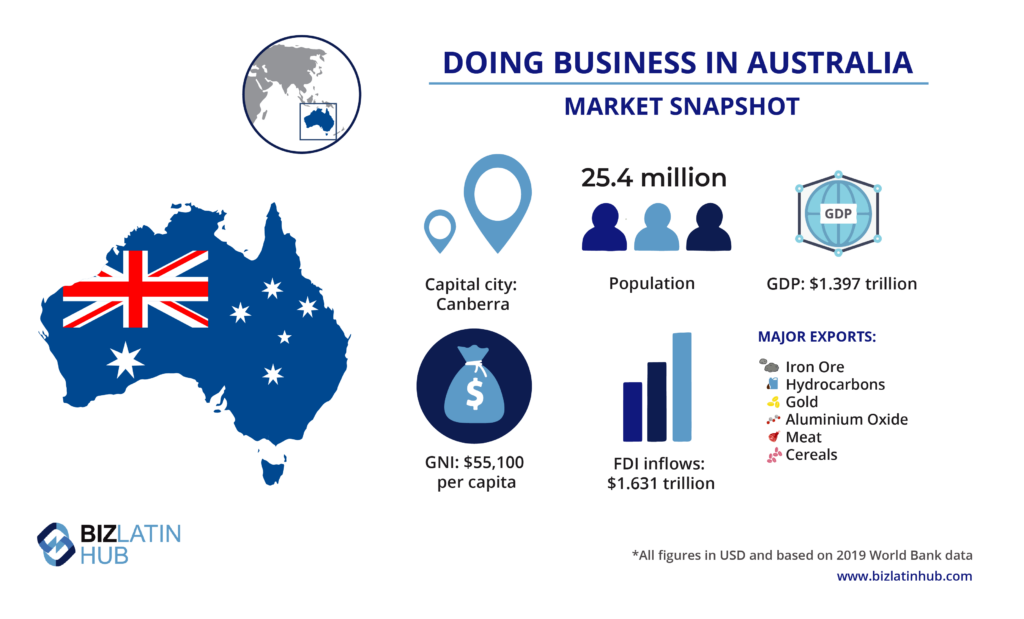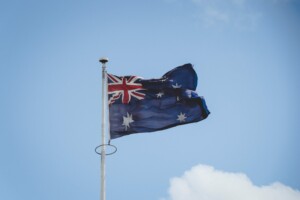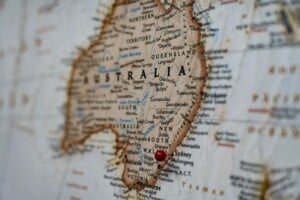Down in the right-hand corner of the world map, you’ll find the region of Australasia. The major economies of the region are Australia and New Zealand. As well as extensively trading with one another, the two countries have built their economies on high-quality exports. Both Australia and New Zealand also have a reputation for being “green”. Millions of tourists flock to the South-Pacific nations each year to enjoy beaches, wildlife and nature. Many businesses have been attracted to the two countries for their openness to foreign investment and ease of doing business.
The Paris Agreement, among others, is a global response to the effects of climate change. Parties need to take responsibility for their own country’s emissions and put in place measures to reduce their carbon footprint. As both countries are members, their governments have implemented a range of targets and policies to combat climate change. We look at environmental initiatives in place across Australia and New Zealand and examine potential arising from business opportunities for firms to set up and do business in either country.

Opportunities for Business – Australia’s clean energy target
The Australian government has set a target to have 33,000 gigawatt-hours of renewable electrical energy generated per year, by 2020. That’s about one-fifth of total electric consumption. Using clean energy will help the country meet its emission targets for 2020 and 2030. The Renewable Energy Target (RET) scheme works in two parts:
The large-scale scheme will create financial incentives for firms to create renewable energy power stations. The legislated annual targets mean serious investments are needed to provide the sufficient renewable energy necessary to meet the deadlines. Countries with experience setting up wind turbine farms, solar farms or hydro-electric stations could find contract opportunities in Australia.
The small-scale scheme is focused on the energy consumption of households. Again, a financial incentive is to encourage homeowners to invest in renewable energy systems, such as solar water heats and heat pumps. To implement this scheme, demand will grow for an educated workforce who know how to produce, install and maintain these energy systems.
Reducing food waste
The National Food Waste Strategy implements collection action to halve Australia’s food waste by 2030. The strategy will support the country’s efforts towards the United Nations’ framework on climate change. Reducing food waste also reduce greenhouse gases that stem from landfills. Considering Australia’s huge agriculture and hospitality industries, there are copious opportunities to innovate food production and consumption within the manufacturing industry. From the producer to the end consumer, there are many stages in the supply chain that are subject to waste food. Local governments will also invest in alternative treatment technologies and landfill disposal alternatives.
Food waste is estimated to cost the economy AU$20 billion per year. Businesses that have expertise in logistics and reducing or repurposing food waste have many options to invest in the sector. From producers and manufacturers that handle base inputs to hotels and planes that have whole, prepared meals leftover, there is a wide range of waste to work with. Consultants can also provide expertise to firms on how to manage inventory, streamline supply chains and reduce overproduction. Studies estimate that investments made to reduce food waste are likely to be recovered within 1 to 2 years. The Business Case for Reducing Food Loss and Waste (Hanson and Mitchell 2017) analysed data from over 700 companies across 17 countries. The study found that the median benefit-cost ratio for investment in food and waste reduction was 14:1 (every $1 invested returned $13 or more).
New Zealand’s onshore recycling processing
Following China’s ban on the importation of recycled materials, many countries around the world will now need to deal with their own country’s waste. Last month, the government announced a plan to work towards reducing waste, redesigning materials so that they can be re-used and supporting the establishment of onshore processing of recyclables. Although waste is an important issue for New Zealanders, the country is one of the highest producers of household waste in the developed world. Firms with capabilities in waste management for recyclables could engage in knowledge and technology transfer in the domestic market. The Global Impact Visa could provide a visa option for individuals with the right capabilities and expertise.
Out with the Plastic
Single-use plastic bags will be banned in New Zealand, from 1 July 2019. Many supermarkets have implemented the ban since the last year. Now the market for alternative packing solutions such as crates and bags made from alternative biodegradable materials is growing. “Food in the nude” is a campaign run by domestic supermarkets to end fruit and vegetable plastic packaging. The NZ Plastic Packaging Declaration will commit to implementing all store and private packaging is 100% reusable, recyclable or compostable by 2025. Misting machines have already been installed in supermarkets, to maintain the freshness of unpackaged fresh produce. The market for alternative solutions that maintain the quality of fruit, vegetables and meat is awaiting further innovation.
There are extensive opportunities to innovate on food packaging to provide hygienic and reusable solutions for both domestic and international markets. Some supermarkets are trialling a system where customers bring their containers for meat and seafood. Here, firms can specialise in providing sterile solutions that maintain low temperatures for transport. Around 13.5% of the population live in rural areas, meaning they may need to drive for extended amounts of time with fresh produce and meat products. Considering the country will now process their own recycling, there is a clear focus on reducing the amount of rubbish and recycling created. Reusable fruit bags, for example, can be used recycled directly by the consumer, and do not need to pass through external recycling processes. Reducing the amount of waste, recyclable or not, will be a major focus for the country over the next decade.
Want to know more? Talk to us
Navigating the business environment in New Zealand and Australia can be complex. It’s wise to engage with a local partner to get timely expertise and assistance and ensure a smooth registration process.
Biz Latin Hub offers a wealth of back-office services – including commercial representation and company formation – that can help get your business started in either of these South Pacific countries. We can provide you with local know-how, guidance and support to ensure the long term success of your business in new territory. Get in touch with us today here to find out more.






